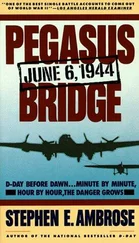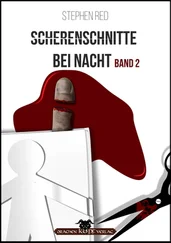Stephen Ambrose - Band of Brothers
Здесь есть возможность читать онлайн «Stephen Ambrose - Band of Brothers» весь текст электронной книги совершенно бесплатно (целиком полную версию без сокращений). В некоторых случаях можно слушать аудио, скачать через торрент в формате fb2 и присутствует краткое содержание. Жанр: История, на английском языке. Описание произведения, (предисловие) а так же отзывы посетителей доступны на портале библиотеки ЛибКат.
- Название:Band of Brothers
- Автор:
- Жанр:
- Год:неизвестен
- ISBN:нет данных
- Рейтинг книги:4 / 5. Голосов: 1
-
Избранное:Добавить в избранное
- Отзывы:
-
Ваша оценка:
- 80
- 1
- 2
- 3
- 4
- 5
Band of Brothers: краткое содержание, описание и аннотация
Предлагаем к чтению аннотацию, описание, краткое содержание или предисловие (зависит от того, что написал сам автор книги «Band of Brothers»). Если вы не нашли необходимую информацию о книге — напишите в комментариях, мы постараемся отыскать её.
Band of Brothers — читать онлайн бесплатно полную книгу (весь текст) целиком
Ниже представлен текст книги, разбитый по страницам. Система сохранения места последней прочитанной страницы, позволяет с удобством читать онлайн бесплатно книгу «Band of Brothers», без необходимости каждый раз заново искать на чём Вы остановились. Поставьте закладку, и сможете в любой момент перейти на страницу, на которой закончили чтение.
Интервал:
Закладка:
On November 4, Winters appealed his punishment under the 104th Article of War. Sobel made an "indorsement" [Evans' spelling] the next day:
1. Punishment for the above offense given by the undersigned will not be lifted by him.
2. When given another task to perform by a ranking officer to myself [Strayer's order to censor the mail] you should have delegated your task to another officer to inspect the latrine and not let it go until such time that there was little time for corrective measures to be taken before the arrival of the General Officer about ten minutes later.
He signed with his usual flourish.
Winters' request for a court-martial, meanwhile, was posing a problem that was not as funny as it sounded for the 2nd Battalion staff. The officers got out the court-martial manual and studied it intensively to try to figure out some way to get out from under this embarrassment. They finally did, and Strayer set aside the punishment and declared the case closed—no court-martial.
Sobel was not finished. The next day, November 12, Evans handed Winters another typed order:
Subject: Failure to Instruct Latrine Orderly To: 1st Lt. R. D. Winters
1. You will reply by indorsement hereon your reason for failure to instruct Pvt. J. Melo in his duties as latrine orderly.
2. You will further reply why he was permitted to be on duty at 1030 Oct. 30 in need of a shave.
"I give up," Winters decided. "Go ahead and shoot me." In that mood he replied, by endorsement:
1. Reason for failure to instruct Pvt. J. Melo in his duties as latrine orderly: No excuse.
2. Reason why he was permitted to be on duty at 1030 hr in need of a shave: No excuse.
The next day Strayer decided, for the good of E Company (where, naturally, the long-anticipated showdown between Sobel and Winters was the talk of the barracks), to transfer Winters out of Easy. Strayer made him battalion mess officer.
That was an insult to Winters, in his view: "You only give a job like that to a guy that can't do anything right."
With Winters gone, Sobel still in charge, and combat coming, the N.C.O.s were in an uproar. Sergeants Ranney and Harris called a meeting. With the exception of Evans and one or two others, all the N.C.O.s in E Company attended. Ranney and Harris proposed that they present Colonel Sink with an ultimatum: either Sobel be replaced, or they would turn in their stripes. They stressed that they would have to act together, with no dissenters land no identifiable leader.
This radical proposal elicited much comment, many questions, great concern, but in the end the group decision was that going into combat under Sobel's command was unthinkable. The only way they could let Strayer and Sink know how strongly they I felt was to turn in their stripes. Each noncom thereupon wrote out his own resignation: Lipton's went as follows: "I hereby turn in my stripes. I no longer want to be a non-commissioned officer in Company E." Lipton was C.Q. (charge of quarters, the sergeant who slept in the orderly room to be available to handle any problems that came up during the night, to wake the men in the morning, etc.) that night. He gathered up the resignations and put the stack in Sobel's "in" basket.
The N.C.O.s then thought further about what they were doing and decided to consult with Winters. He was invited to the orderly room, where on arrival Ranney told him what the group had done.
"Don't," said Winters. "Don't even think about it. This is mutiny."
The N.C.O.s protested. As the discussion continued, Sobel walked in. Everyone was speechless. Sobel did not say a word, he just walked over to his desk and picked up a book. As he turned to leave, Ranney said in a normal voice, "Now, Lieutenant Winters, what are we going to do about improving our athletic program?" Sobel gave no hint of concern, he just walked out.
Winters felt that Sobel had to have known what was going on. "Hell, there was no secret about it." Ranney had invited Evans to the meeting; it was all but certain Evans had told Sobel.
Indeed, by this time the whole battalion was talking about Sobel's battles, first with Winters, now with his N.C.O.s. Sink would have had to have been deaf, dumb, and blind not to have been aware. He should also have been grateful that Winters had talked the N.C.O.s out of presenting him with an ultimatum. A few days later, Sink came down to Company E, called all the noncoms together, and as Lipton recalled, "Gave us hell. He told us we had disgraced our company and that he could put every one of us in the guardhouse for years. As we were preparing for combat, he said that it could be called mutiny in the face of the enemy for which we could be shot."
Fortunately for Sink, the 101st Airborne had just established a Parachute Jumping School at the nearby village of Chilton Foliat, in order to qualify as paratroopers doctors, chaplains, communications men, forward artillery observers, and others who would be jumping on D-Day. Who better than Sobel to run a training camp?
Sink sent Sobel to Chilton Foliat and brought 1st Lt. Patrick Sweeney from Able Company to be X.O. of Easy. He made 1st Lt. Thomas Meehan of Baker the C.O. of Easy. And he brought Winters back, as leader of the 1st platoon. Sergeant Ranney was busted to private, and Harris was transferred. The Sobel era of Easy Company had come to an end.
Meehan was Sobel's opposite. Slender, fairly tall, willowy, he had common sense and competence. He was strict but fair. He had good voice command. "Under Meehan," Winters said, "we became a normal company."
Training intensified. On December 13, the company made a night jump and lost its first man, Pvt. Rudolph Dittrich of 1st platoon, due to parachute failure. Platoons and squads were being sent out on three-day problems, with different men being put in command as lieutenants and sergeants were declared out of action. "Imagine me platoon leader," Carson wrote in his diary on December 12. "No, it can't be." But it was. They were learning to be resourceful, which included learning to live off the land. This included "fishing" by tossing hand grenades into the streams and improving their diet by finding deer on the country estates that were willing to walk into a bullet in the head.
Christmas was a day off, with all the turkey a man could eat. New Year's Eve was quiet, "We just waited up for the New Year," Carson wrote. "I wonder what it shall bring, wonder how many of us will see 1945."
On January 18, Gen. Bernard Law Montgomery, commander of the 21st Army Group to which the 101st was attached, came to Chilton Foliat for an inspection. He reviewed the regiment, then told the men to break ranks and rally 'round his jeep. Climbing onto the "bonnet," he told them how good they were. "After eyeing the 506th," he said, "I pity the Germans."
The days slowly began to lengthen, meaning decent fighting weather was approaching, tension increased. Inevitably the young men thought of death. Few made their thoughts articulate, but Webster dealt with his directly. He wrote his mother, instructing her to "stop worrying about me. I joined the parachutists to fight. I intend to fight. If necessary, I shall die fighting, but don't worry about this because no war can be won without young men dying. If those things which are precious are saved only by sacrifice."
In February, training became more big unit oriented as the 101st, and indeed the entire invasion force of more than seven divisions, began rehearsals for the attack on Normandy. On March 23, the 2nd and 3rd Battalions of the 506th made a combined jump, by far the largest of the war to date for the regiment. The occasion was an inspection visit by Prime Minister; Winston Churchill, Supreme Allied Commander Dwight D. Eisenhower, U.S. First Army commander Omar Bradley, Gen. Maxwell Taylor, commander of the 101st (General Lee had a heart attack in February and was forced to return to the States), and numerous other big shots.
Читать дальшеИнтервал:
Закладка:
Похожие книги на «Band of Brothers»
Представляем Вашему вниманию похожие книги на «Band of Brothers» списком для выбора. Мы отобрали схожую по названию и смыслу литературу в надежде предоставить читателям больше вариантов отыскать новые, интересные, ещё непрочитанные произведения.
Обсуждение, отзывы о книге «Band of Brothers» и просто собственные мнения читателей. Оставьте ваши комментарии, напишите, что Вы думаете о произведении, его смысле или главных героях. Укажите что конкретно понравилось, а что нет, и почему Вы так считаете.



![Stephen Ambrose - Citizen Soldiers [Condensed]](/books/346737/stephen-ambrose-citizen-soldiers-condensed-thumb.webp)
![Stephan Orth - Behind Putin's Curtain - Friendships and Misadventures Inside Russia [aka Couchsurfing in Russia]](/books/415210/stephan-orth-behind-putin-s-curtain-friendships-a-thumb.webp)





